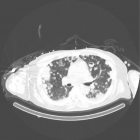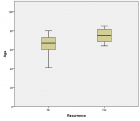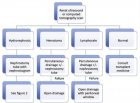Table of Contents
The Police Power of the National Health Surveillance Agency – ANVISA
Published on: 27th December, 2024
The National Health Surveillance Agency (ANVISA) is a public institution created by Law 9782/1999, which integrates the field of Collective Health and acts in the prevention, control, and inspection of sanitary conditions in various sectors, such as food, health, pharmacies, hospitals, and commercial establishments. Its main objective is to guarantee the protection of public health, ensuring that products, services, and environments comply with established standards, to promote health and preventing diseases. To exercise its inspection and control function, Sanitary Surveillance has the power of sanitary police, which gives it the authority to apply necessary measures and curb practices that pose risks to the health of the population.The performance of the Sanitary Surveillance is fundamental to prevent health risks in any part of society and to guarantee national programs for patient safety. It is also essential to prevent diseases, control risks, and monitor compliance with health standards and specific regulations. The police power of Sanitary Surveillance consists of establishing norms and technical regulations, carrying out inspections and inspections, issuing temporary or permanent interdiction orders in establishments that do not comply with the norms, as well as forwarding complaints to the Public Ministry in cases of crimes against public health. Arrests carried out by Sanitary Surveillance agents are extreme measures and applied in serious situations of risk to public health or when there is repeated disrespect for sanitary regulations. The prohibited establishments have the right of defense and may seek to regularize the situation to obtain the release of activities.The performance of the Sanitary Surveillance has significant impacts on the prevention of disease outbreaks and epidemics. Identifying and correcting inappropriate practices helps to prevent the spread of pathogenic agents and reduce the risk of contagion in collective environments. The institution’s preventive and supervisory activities contribute to reducing risks to the population’s health, preventing disease outbreaks, food poisoning, and the proliferation of pests, among other problems. Finally, the importance of exercising police power with transparency, impartiality, and respect for individual rights is emphasized, always aiming at the collective interest and the promotion of the common good. In summary, Health Surveillance plays an essential role in protecting public health, seeking to ensure that the population has access to safe products and services, contributing to the improvement of quality of life and disease prevention.
COVID-19, Long COVID, and Gastrointestinal Neoplasms: Exploring the Impact of Gut Microbiota and Oncogenic Interactions
Published on: 4th September, 2024
Background: The impact of COVID-19 and long-term COVID-19 on gastrointestinal neoplasms remains underexplored. The current review investigates the potential link between these conditions and the role of gut microbiota in mediating oncogenic processes. Dysbiosis, characterized by alterations in gut microbial composition, may exacerbate inflammation and immune dysregulation, contributing to cancer development.Methods: A comprehensive literature review was conducted using databases including PubMed, Scopus, Embase, SciELO, and Web of Science. Inclusion criteria encompassed studies published between 2020 and 2024 that explored the intersection of COVID-19, long-term COVID-19, and gastrointestinal cancers. The articles were critically appraised for quality and relevance, and data were synthesized to elucidate common mechanisms and outcomes.Results: The review identifies several mechanisms by which gut microbiota may influence cancer risk in COVID-19 patients. Persistent inflammation, oxidative stress, and immune dysfunction observed in Long COVID were associated with dysbiosis. Specific microbial metabolites, such as secondary bile and short-chain fatty acids, were implicated in promoting tumorigenesis. Comparative analysis of studies suggests that SARS-CoV-2-induced dysbiosis may heighten susceptibility to gastrointestinal cancers, particularly in patients with prolonged post-infection symptoms.Conclusion: The findings underscore the need for further research to clarify the role of gut microbiota in cancer development among COVID-19 patients. These mechanisms could inform preventative strategies and therapeutic interventions, particularly for those experiencing COVID. The review highlights gaps in current knowledge and advocates for longitudinal studies to assess the long-term effects of COVID-19 on gastrointestinal health.
Magnetic Properties of Reactive Oxygen Species and their Possible Role in Cancer Therapy
Published on: 19th August, 2024
Spin-depending internal magnetic interactions in oxygen are crucial for the chemistry and photobiology of this molecule. Photosynthesis, respiration, and many other life-supporting oxygen reactions are governed by enzymes that use fine magnetic forces to overcome the spin-forbidden character of all aerobic metabolism. Life on Earth occurs on the border between combustion and oxidative phosphorylation, and this balance is largely dependent on reactive oxygen species. ROS can cause apoptosis or cell necrosis, and ROS also controls homeostasis through numerous signaling functions. Until recently, biochemists had not paid attention to internal magnetic interactions that influence the chemical activity of such ROS as superoxide ion, singlet oxygen, peroxynitrite, and many others. The role of superoxide dismutase, the oldest enzyme on the Earth, which provides superoxide concentration control, stresses the importance of the O2-• species as the precursor of many other ROS. Spin-orbit coupling in O2-• and O2 species are the main internal magnetic interactions that could influence cancer growth and be connected with cancer therapy.
Durable Response to Pembrolizumab and Lenvatinib in a Patient with Chemotherapy-refractory Cholangiocarcinoma
Published on: 18th July, 2024
Cholangiocarcinoma (CCA), a rare malignancy originating from bile duct epithelial cells, often presents a challenging prognosis due to its rarity, delayed diagnosis, and early recurrence post-curative-intent treatments. Additional complexities include difficulties in achieving R0 resection during surgical intervention and the lack of effective second-line treatments following the failure of first-line regimens, particularly in unresectable advanced cases.In this case study, we demonstrate a durable response to a combination regimen of pembrolizumab and lenvatinib in a patient with distal CCA. Despite the regimen’s interim median Progression-Free Survival (PFS) of 6.1 months (95% CI, 2.1-6.4), our patient achieved a clinical and radiological PFS of approximately two years. The underlying mechanisms, potentially involving the upregulation of immune response pathways through undisclosed means or influenced by lenvatinib’s activation of T cells, might augment the sensitivity to PD-1 antibodies like pembrolizumab, contributing to the patient’s sustained response over two years.This case also highlights the significance of the patient’s initial good health condition, multidisciplinary care, and the potential impact of molecular subtyping on treatment selection in a patient with distal CCA who underwent numerous diagnostic procedures, intricate surgical interventions, and subsequent treatment regimens over seven years. Additionally, we underscore significant landmark trials and emerging combination therapies, including chemotherapies, immunotherapy, and targeted treatments in this report.
Accessory Splenic Mass Masquerading as Hepatocellular Carcinoma: A Diagnostic Dilemma
Published on: 10th July, 2024
The spleen plays a pivotal role in our immune system by facilitating the proliferation and differentiation of lymphocytes and monocytes. Typically located in the left upper quadrant retroperitoneally, splenic tissue found outside of its usual position is termed ectopic spleen. When the tissue maintains its histological architecture and encapsulation and receives blood supply from splanchnic vessels, it is called an accessory spleen. Although it commonly presents near the splenic hilum or pancreatic tail, rare instances have been reported in the gastric, liver, gastrosplenic/lienorenal ligaments, as well as thoracic and gonadal regions. However, the case of an accessory spleen, mimicking a hepatic lesion in the right diaphragm represents a novel observation.
Lived Experiences of Cervical Cancer Patients Receiving Chemotherapy at Cancer Diseases Hospital in Lusaka, Zambia
Published on: 28th June, 2024
Background: Cervical Cancer poses a significant global health challenge, especially in lowresource settings. It is a significant health problem worldwide, with over half a million new cases diagnosed each year, accounting for approximately 6.6% of all gynecological Cancer cases and over 300,000 deaths each year. In Zambia, it is the leading cause of mortality and morbidity among women. The number of cases has increased by approximately 40%. This study explored the lived experiences of Cervical Cancer patients undergoing chemotherapy at the Cancer Diseases Hospital in Lusaka, Zambia, focusing on their subjective experiences. By examining their journeys through chemotherapy, the study aimed to highlight the subtle complexities in which treatment impacts patients’ lives and well-being. Methods and procedures: Employing a qualitative descriptive phenomenological study design, in-depth interviews were conducted with 10 participants with diverse demographics. The sample size was determined by data saturation and saturation was reached at 10. Ethical protocols were ensured, and Study approval was obtained from UNZABREC and the National Health Research Authority. Thematic analysis was conducted on audio-recorded interviews with cervical cancer patients, ensuring confidentiality and accuracy while discerning significant patterns and themes in their narratives. Results/findings: Emotional experiences ranged from anxiety to gratitude. Psychological challenges encompassed coping mechanisms, stress management, emotional adjustments, and treatment-related fears. Socially, community support, workplace accommodations, and healthcare provider roles were key. Physical experiences revealed side effects managed through coping strategies. Financial challenges significantly impacted individuals and families. Conclusions and recommendations: The study revealed that cervical cancer patients undergoing chemotherapy face complex challenges spanning emotional, psychological, social, physical, and financial domains, underscoring the imperative for comprehensive patient-centered care. Recommendations suggest focusing on financial aid for cancer patients and tackling treatment expenses and insurance issues. The Cancer Diseases Hospital should establish multidisciplinary teams for holistic care, and enhance patient education efforts. Nurses should adopt strategies integrating cultural competence and patient-centered care to address diverse challenges during chemotherapy. These aim to enhance the well-being and care quality of Cervical Cancer patients.
Breast Cancer in Female
Published on: 22nd April, 2024
Anxiety is also a very common disorder, both in patients and their family members. Anxiety and stress can compromise the quality of life of cancer patients and their families. Feelings of anxiety and anguish can occur at various times of the disease path: during screening, waiting for test results, at diagnosis, during treatment or at the next stage due to concern about relapses. Anxiety and distress can affect the patient’s ability to cope with diagnosis or treatment, frequently causing reduced adherence to follow-up visits and examinations, indirectly increasing the risk of failure to detect a relapse, or a delay in treatment; and anxiety can increase the perception of pain, affect sleep, and accentuate nausea due to adjuvant therapies. Failure to identify and treat anxiety and depression in the context of cancer increases the risk of poor quality of life and potentially results in increased disease-related morbidity and mortality [1]. From all this we deduce the need and importance of dedicated psychological and psychiatric support for these patients within the Breast Unit. The fact that the psycho-oncologist who is dedicated to the care of patients with breast cancer must be an integrated figure in the multidisciplinary team of the Senological Center and not an external consultant is enshrined in the same European Directives that concern the legislation concerning the requirements that a Breast Unit must have in order to be considered a Full Breast Unit (Wilson AMR, et al. 2013).One of the most complex situations you find yourself dealing with is communication with the patient. This communication is particularly complex in two fragile subpopulations that are represented by women. [Menditto L. T (Tirannie) Cancer of the Breast. Am J Psychol & Brain Stud, 2023; 1(1):26-30].
Oral Cancer Management is not just Treatment! But also, how early Pre-cancerous Lesions are Diagnosed & Treated!!
Published on: 12th April, 2024
Oral Cancer (OC) or squamous cell carcinoma of the oral cavity accounts for approximately 3% of all cancers worldwide, with increased incidence in developing countries. The use of tobacco is directly associated with approximately 80% of oral cancers, especially in older men over 40 years of age. As nearly one-third of the Indian population over 15 years consume smokeless tobacco in one or the other forms, a recent increase has been observed in OC incidence among women and young adults. Lately, the sexual behaviors of young & homosexuals have resulted in the emergence of oropharyngeal cancers due to infection with HPV 16. About 60% of oral cancer cases in India have a five-year survival rate, and this can be improved to 70% to 90% by mere early detection in stages I and II and with various treatment modalities. Despite the well-known benefits of oral cancer screening for the whole population in developing countries remains controversial. It is imperative to address the cultural barriers and societal norms, which limit the acceptability and participation in screening programs in India and many developing countries. This unique challenge of increasing OC morbidity in India and developing countries requires horizontal integration of the health systems with new services focused on cancer control, which gives the best chance for long-term survival, improved outcomes, and affordable care!This article is based on the author’s experience of overseeing 1 case of early detection and 2 cases of delayed diagnosis, outcomes and relevant literature review, and current guidelines for the management of OC.
Knowledge, Attitude, and Practice of Healthcare Workers in Ekiti State, Nigeria on Prevention of Cervical Cancer
Published on: 3rd April, 2024
Purpose: The role of healthcare workers in cervical cancer prevention is pivotal because healthcare workers’ recommendations have been reported to be a key motivational factor for cervical cancer screening among women in Nigeria. Assessing their knowledge, attitudes, and practices on cervical cancer prevention is necessary.Patients and methods: This is a cross-sectional survey involving healthcare workers in Ekiti State, Nigeria. A questionnaire designed for the study was used to obtain data about the knowledge, attitudes, and practices of the healthcare workers. Logistic regression was used to assess the determinants of practice and a p - value of less than 0.05 was taken as statistically significant.Results: Out of 188 participants that completed the study, 165(90.7%) had good knowledge about the prevention of cervical cancer while 24(13.2%) had good practice concerning the prevention of cervical cancer. positive attitude (Odds ratio 1.24, 95% CI 1.14 - 1.35, p < 0.001) increased the odds of good practice.Conclusion: There was no association between the knowledge of cervical cancer prevention and the practice of the healthcare workers. Further research is required to explore the incongruence between knowledge and practice of cervical cancer prevention and its practice.

If you are already a member of our network and need to keep track of any developments regarding a question you have already submitted, click "take me to my Query."



















































































































































